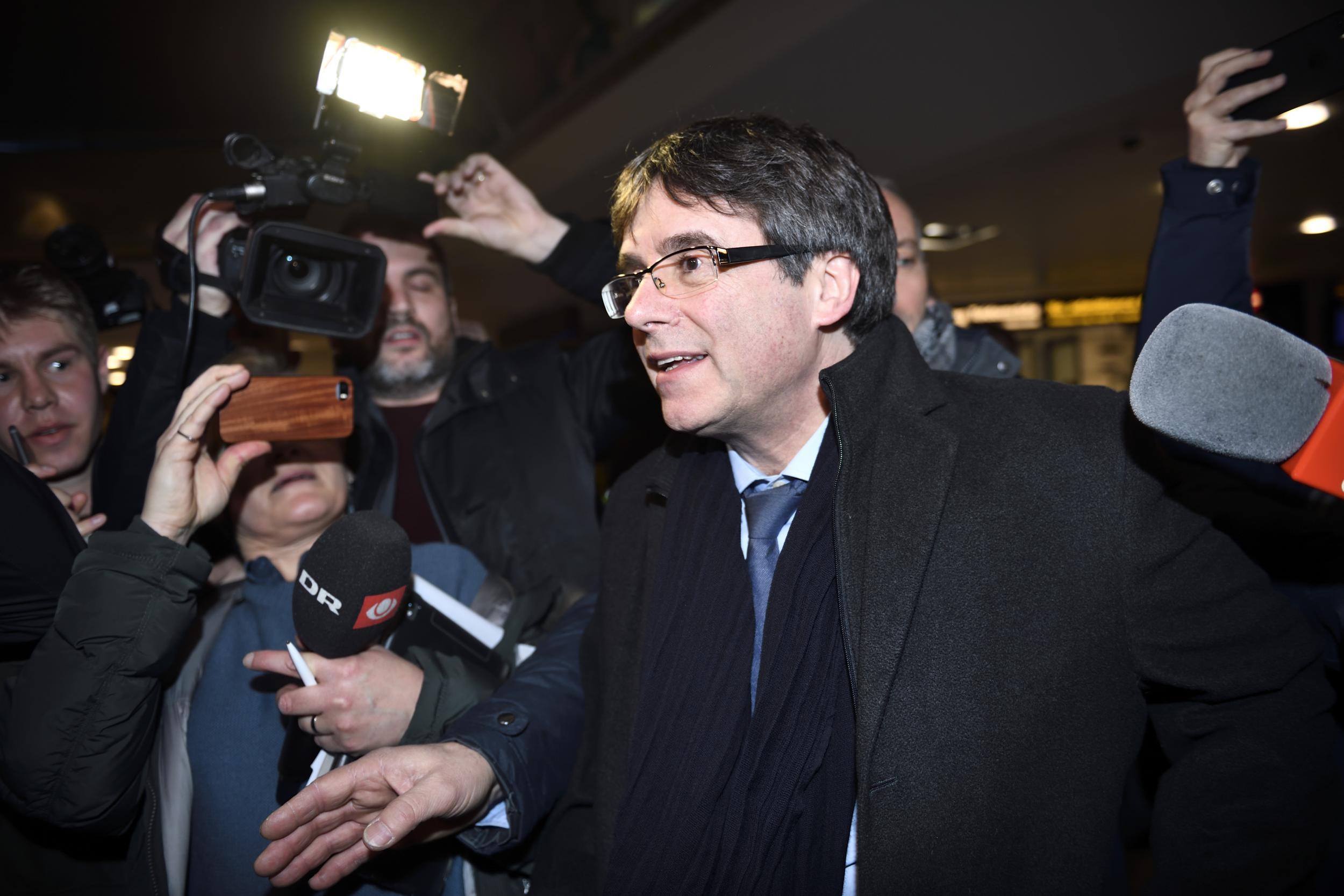Fugitive Catalan politician Carles Puigdemont officially proposed as president by parliament speaker
The Catalan politician is in Denmark today where he risked arrest

Your support helps us to tell the story
From reproductive rights to climate change to Big Tech, The Independent is on the ground when the story is developing. Whether it's investigating the financials of Elon Musk's pro-Trump PAC or producing our latest documentary, 'The A Word', which shines a light on the American women fighting for reproductive rights, we know how important it is to parse out the facts from the messaging.
At such a critical moment in US history, we need reporters on the ground. Your donation allows us to keep sending journalists to speak to both sides of the story.
The Independent is trusted by Americans across the entire political spectrum. And unlike many other quality news outlets, we choose not to lock Americans out of our reporting and analysis with paywalls. We believe quality journalism should be available to everyone, paid for by those who can afford it.
Your support makes all the difference.The fugitive and self-exiled Catalan politician Carles Puigdemont has been formally proposed as the leader of a new government by the speaker of the Catalan parliament.
The latest move in the would-be breakaway region’s legislature comes as Mr Puigdemont called the bluff of Spanish authorities and travelled to Denmark despite the threat of arrest.
He has been residing in Belgium, where he is avoiding arrest for charges of rebellion, sedition and misuse of public funds related to Catalonia’s independence referendum and declaration last year.
It is unclear whether Mr Puigdemont will be able to form a government because his opponents say he must attend a sitting of the parliament in person to become leader. He has said he will not return to Catalonia until he has been given “guarantees” that he will not be arrested.
Catalan parliament speaker Roger Torrent says that Mr Puigdemont is the only candidate with enough backing to attempt to form a government, however.
On Monday, the would-be president travelled to Copenhagen, his first visit outside Belgium since his self-imposed exile began, to speak at a university lecture.
The Spanish state prosecution service had said they would try and seek Mr Puigdemont’s arrest if he travelled to Denmark to host the talk.
The Spanish Supreme Court had previously issued a European Arrest Warrant for the politician when he was in Belgium, but withdrew it in December to avoid the risk of the Belgian government granting him asylum. Mr Puigdemont and the Catalan independence movement in general have allies in Belgium, where some political parties support the the secession of Flanders.
But on Monday the Supreme Court said it would not re-activate the arrest warrant for the visit to Denmark, making his detention unlikely.

During the debate in Copenhagen, the politician announced that he would address the media on Tuesday, declining to answer questions about the current situation in the Catalan parliament.
“If I say something about the news in Catalonia in relation with the decision of the parliament or the decision of the Spanish Supreme Court, I think nothing of what was discussed today will appear in the media,” Mr Puigdemont said when asked at the University of Copenhagen.
The Spanish government late last year dissolved the Catalan home rule administration and imposed direct rule from Madrid on the province after moves towards independence by its separatist government.
Following new elections in December, an alliance of pro-independence parties won a majority again – albeit a narrower one than before.
Join our commenting forum
Join thought-provoking conversations, follow other Independent readers and see their replies
Comments